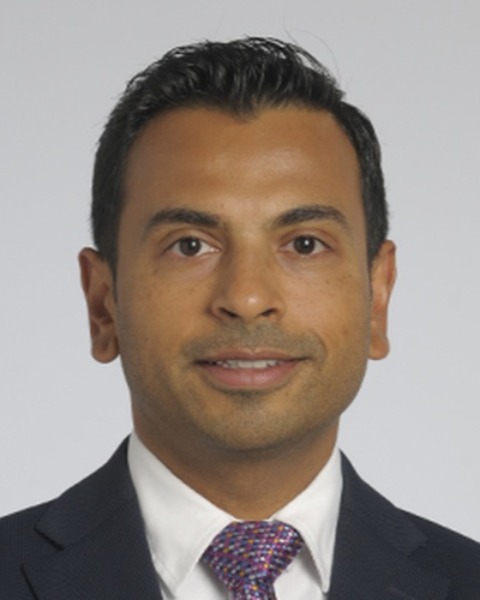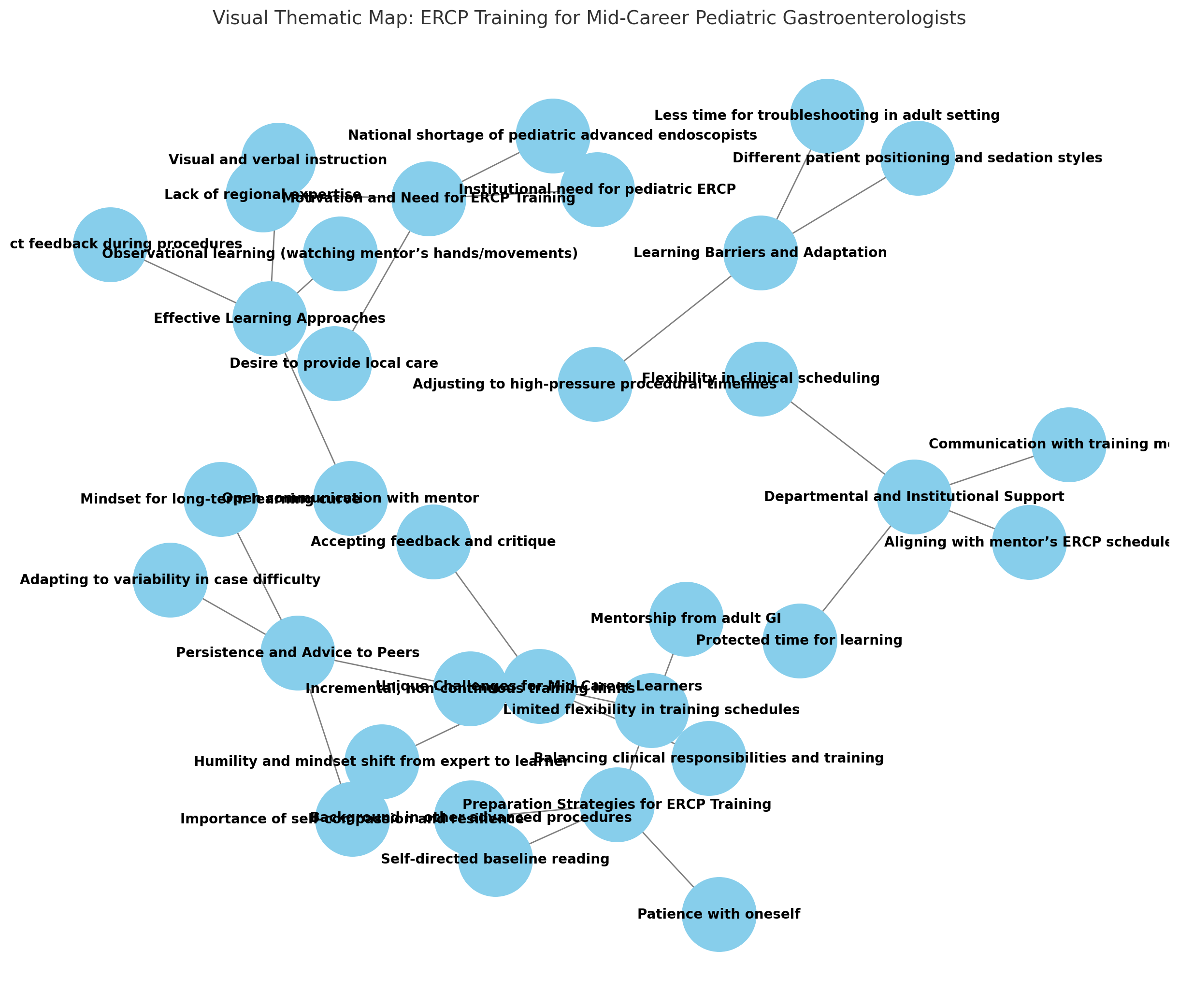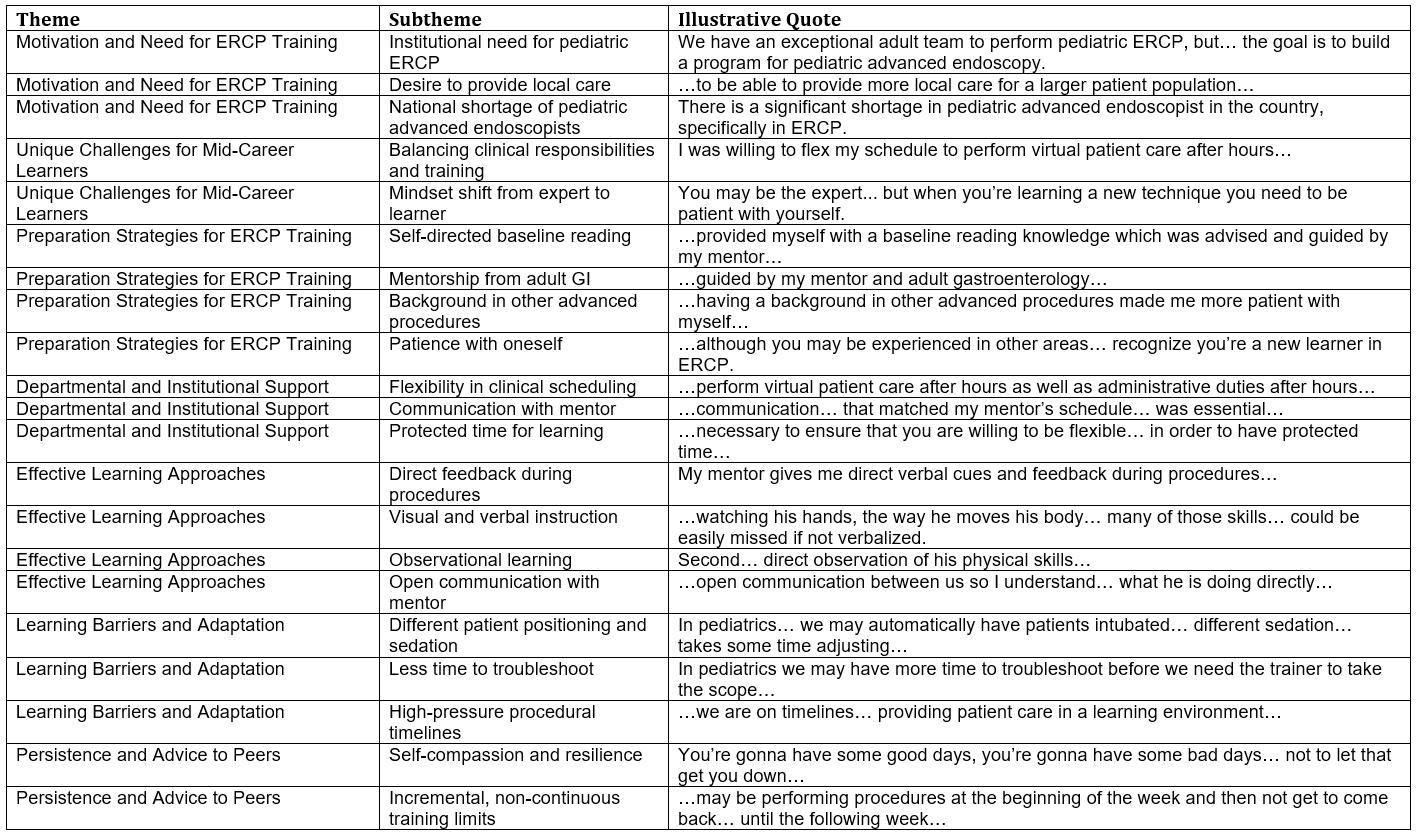Sunday Poster Session
Category: Pediatrics
P1886 - Educational Innovation: A Mentored Approach to Pediatric ERCP Skill Acquisition for Mid-Career Pediatric Gastroenterologist
Sunday, October 26, 2025
3:30 PM - 7:00 PM PDT
Location: Exhibit Hall

Hassan Siddiki, MD, MS, MEd
Cleveland Clinic
Cleveland, OH
Presenting Author(s)
Award: ACG Presidential Poster Award
Hassan Siddiki, MD, MS, MEd, Jessica Barry, MD
Cleveland Clinic, Cleveland, OH
Introduction: Pediatric gastroenterology training programs do not provide adequate procedural exposure to achieve clinical competency in ERCP. Unlike adult GI, however, formal pediatric ERCP training programs are rare. As a result, pediatric gastroenterologists face significant barriers to ERCP training—competing for adult-focused fellowship positions or relocating to access one of the few pediatric ERCP opportunities nationwide. This gap has left most pediatric GI divisions without ERCP-capable providers. We describe and evaluate an innovative educational pathway developed to train a mid-career practicing pediatric gastroenterologist in ERCP, using a competency-based, mentored approach.
Methods: This qualitative educational study utilized participant observation and semi-structured interviews through purposive sampling. Observations focused on teaching methods, and learning styles. Observational methods allowed in-depth insight into real-world training dynamics. Semi-structured interviews explored motivation, experiences, and challenges. Interviews were video-recorded, then transcribed and coded thematically using Atlas.ti. Visual thematic maps were created (Figure 1) and illustrative quotes were formatted in a table (Figure 2).
Results: Six major themes emerged. 1) Learner Motivation – The trainee was highly self-directed and driven by a desire for professional growth. Institutional need for pediatric ERCP, national shortage of pediatric advanced endoscopists 2) Unique Challenges for Mid-Career Learners - Balancing clinical responsibilities and training, mindset shift from expert to learner, accepting feedback, limited flexibility in training schedules 3) Supportive Environment – Leadership endorsed the training model, and the mentor demonstrated flexibility and commitment to individualized instruction. 4) Innovative Instructional Design – Training incorporated adult learning theory, educational scaffolding, progressive complexity, and frequent feedback. The learning remained within the trainee’s zone of maximal development and skill acquisition. 5) Learning Barriers - Time management. 6) Advice to Peers: Self-compassion and growth mindset.
Discussion: We present a novel, replicable pathway for developing ERCP competency among mid-career pediatric gastroenterologists. Grounded in adult learning principles and tailored mentorship, this model addresses a critical training gap and offers a sustainable approach to expanding advanced endoscopy capacity in pediatric GI practice.

Figure: Visual thematic map based on the thematic analysis of interview data. Each theme is connected to its respective subthemes, providing a clear overview of the key findings.

Figure: Illustrative Quotes in Table Format by Theme and Subtheme
Disclosures:
Hassan Siddiki: Boston Scientific – Consultant. Steris – Consultant.
Jessica Barry indicated no relevant financial relationships.
Hassan Siddiki, MD, MS, MEd, Jessica Barry, MD. P1886 - Educational Innovation: A Mentored Approach to Pediatric ERCP Skill Acquisition for Mid-Career Pediatric Gastroenterologist, ACG 2025 Annual Scientific Meeting Abstracts. Phoenix, AZ: American College of Gastroenterology.
Hassan Siddiki, MD, MS, MEd, Jessica Barry, MD
Cleveland Clinic, Cleveland, OH
Introduction: Pediatric gastroenterology training programs do not provide adequate procedural exposure to achieve clinical competency in ERCP. Unlike adult GI, however, formal pediatric ERCP training programs are rare. As a result, pediatric gastroenterologists face significant barriers to ERCP training—competing for adult-focused fellowship positions or relocating to access one of the few pediatric ERCP opportunities nationwide. This gap has left most pediatric GI divisions without ERCP-capable providers. We describe and evaluate an innovative educational pathway developed to train a mid-career practicing pediatric gastroenterologist in ERCP, using a competency-based, mentored approach.
Methods: This qualitative educational study utilized participant observation and semi-structured interviews through purposive sampling. Observations focused on teaching methods, and learning styles. Observational methods allowed in-depth insight into real-world training dynamics. Semi-structured interviews explored motivation, experiences, and challenges. Interviews were video-recorded, then transcribed and coded thematically using Atlas.ti. Visual thematic maps were created (Figure 1) and illustrative quotes were formatted in a table (Figure 2).
Results: Six major themes emerged. 1) Learner Motivation – The trainee was highly self-directed and driven by a desire for professional growth. Institutional need for pediatric ERCP, national shortage of pediatric advanced endoscopists 2) Unique Challenges for Mid-Career Learners - Balancing clinical responsibilities and training, mindset shift from expert to learner, accepting feedback, limited flexibility in training schedules 3) Supportive Environment – Leadership endorsed the training model, and the mentor demonstrated flexibility and commitment to individualized instruction. 4) Innovative Instructional Design – Training incorporated adult learning theory, educational scaffolding, progressive complexity, and frequent feedback. The learning remained within the trainee’s zone of maximal development and skill acquisition. 5) Learning Barriers - Time management. 6) Advice to Peers: Self-compassion and growth mindset.
Discussion: We present a novel, replicable pathway for developing ERCP competency among mid-career pediatric gastroenterologists. Grounded in adult learning principles and tailored mentorship, this model addresses a critical training gap and offers a sustainable approach to expanding advanced endoscopy capacity in pediatric GI practice.

Figure: Visual thematic map based on the thematic analysis of interview data. Each theme is connected to its respective subthemes, providing a clear overview of the key findings.

Figure: Illustrative Quotes in Table Format by Theme and Subtheme
Disclosures:
Hassan Siddiki: Boston Scientific – Consultant. Steris – Consultant.
Jessica Barry indicated no relevant financial relationships.
Hassan Siddiki, MD, MS, MEd, Jessica Barry, MD. P1886 - Educational Innovation: A Mentored Approach to Pediatric ERCP Skill Acquisition for Mid-Career Pediatric Gastroenterologist, ACG 2025 Annual Scientific Meeting Abstracts. Phoenix, AZ: American College of Gastroenterology.

